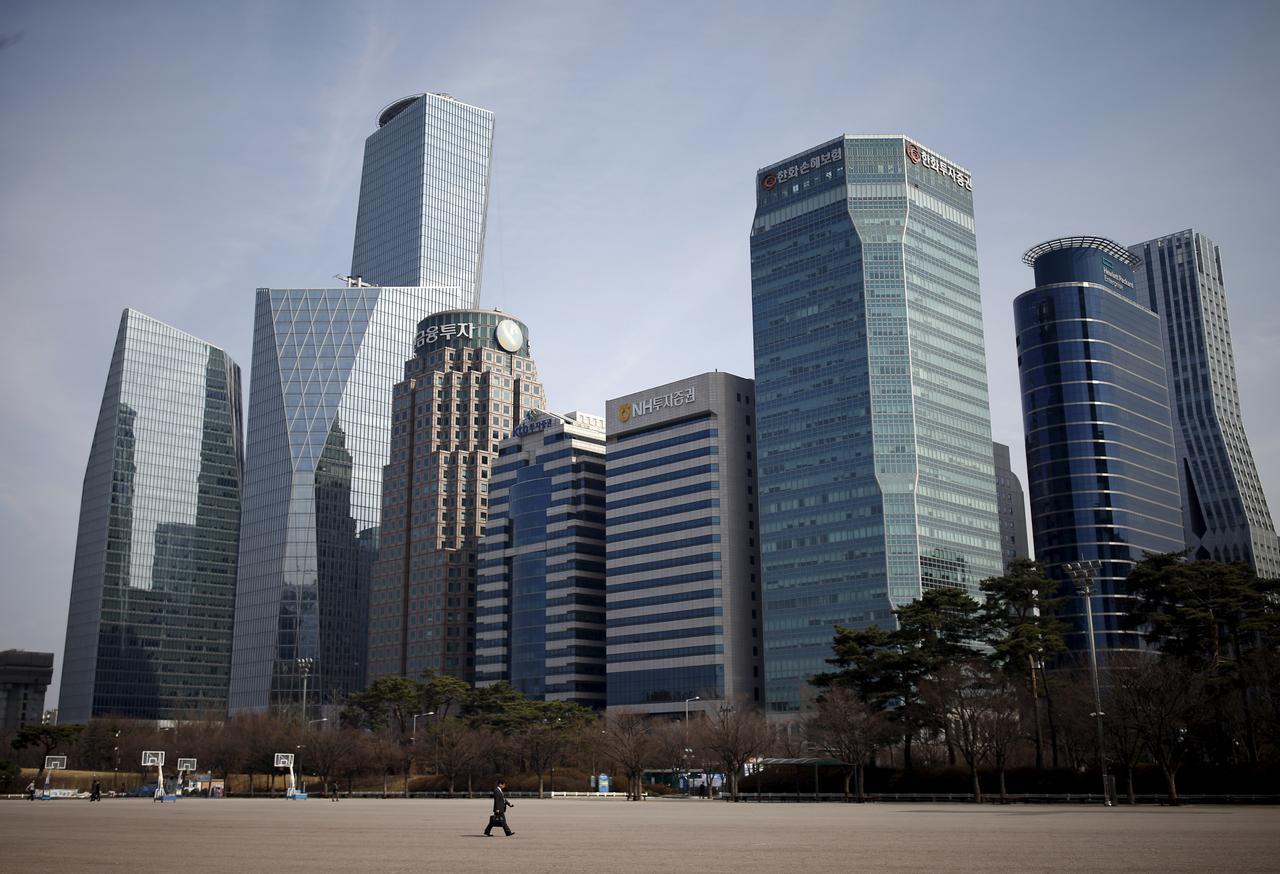South Korea’s financial services lobby groups have called on regulators to take a step back from their involvement in corporate internal affairs, industry sources said Tuesday, apparently irked by the authorities’ clampdown on their chiefs held responsible for private fund misselling scandals.
Six representative bodies for financial service firms here, including commercial banking, brokerage and insurers, filed a joint request Monday asking regulators to hand the companies’ boards more autonomy over internal affairs. The six bodies were Korea Federation of Banks, Korea Financial Investment Association, Korea Life Insurance Association, General Insurance Association of Korea, the Credit Finance Association and Korea Federation of Savings Banks.
In the request, the representative bodies hinted at their objection against the policymaking Financial Services Commission and the watchdog Financial Supervisory Services’ slew of “harsh” penalties slapped on company chiefs.
“We request the financial authorities to monitor and make suggestions rather than the current way of imposing sanctions, considering that internal control is a matter of self-regulation for businesses,” the document read.
“We also ask regulators to provide detailed legal clauses for cases that require mandatory involvement by the authorities concerning customer protection and sound management to prevent arbitrary rulings and bolster foreseeability for businesses,” it added.
The financial sector’s request was met with a divided response, with critics saying that with the chairs and CEOs’ clout over the nomination of board members, establishment of a transparent system would be crucial.
“It would be important to establish a system that could protect and support the board’s independence, separate from the leadership’s influence,” said Yoon Seung-young, a law professor at Hankuk University of Foreign Studies.
The request follows the Seoul Administrative Court’s decision last month that nullified the FSS’ “reprimand” warning on Woori Financial Group Chairman and Chief Executive Officer Sohn Tae-seung. Sohn was imposed with the third-highest level out of the FSS’ five-tier punishment system, which intended to bar Sohn -- who started his second term as the banking giant’s chairman in March last year -- from holding positions at financial institutions for three years. He can stay on for the remainder of his current term.
Sohn was held responsible for the Woori’s flagship lender Woori Bank’s misselling of so-called derivatives-linked fund products, which caused retail investors to lose money. According to the FSS, Woori Bank sold a total 401.2 billion won ($346.5 million) to some 600 retail investors from August to November 2019 with most of them losing the majority of their principal investments.
The fund products were designed to return large profits when the interest rates of specific countries, including Britain and Germany, stayed above a certain level. But instead, it dealt investors with heavy losses after interest rates or bond yields in major economies fell.
The court decision has spurred concerns that it would provide grounds for financial institutions to point to loopholes in the law rather than admit their responsibility in the missellings and provide clemency to the firms’ chiefs.
While the court ruling stated that there is no legal ground to impose a penalty to a staff member or an executive of a financial institution for “a failure to abide by internal control standards, not a failure to establish them,” it criticized Woori for improper procedure, and a lack of it, leading up to the misselling scandal.
Woori Financial Group filed a lawsuit against the FSS and an injunction to suspend the penalty in March 2020, as soon as the financial watchdog recommended the regulator, the FSC, confirm the penalty.
As of Tuesday, the FSS has yet to make a decision on whether to appeal.
A slew of financial business leaders currently await their FSS penalties to be either rejected or confirmed by the FSC, over the misselling of different products, including the derivatives-linked fund products and those tied to the troubled Lime Asset Management funds.
Woori sold a hefty 270.3 billion won of Lime funds to retail investors. Lime came under the spotlight after it froze withdrawals from its funds in 2019, citing a cash crunch. Woori was the largest seller of the funds tied to some 1.7 trillion won in the misselling scandal.
By Jung Min-kyung (
mkjung@heraldcorp.com)







![[Weekender] Korea's traditional sauce culture gains global recognition](http://res.heraldm.com/phpwas/restmb_idxmake.php?idx=644&simg=/content/image/2024/11/21/20241121050153_0.jpg)
